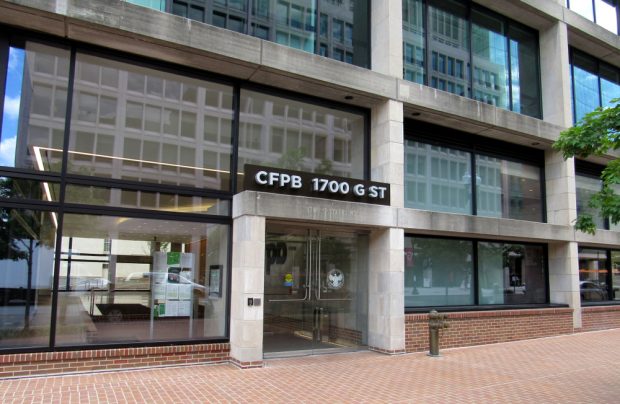 Entrance to the CFPB headquarters. (Source: Shutterstock)
Entrance to the CFPB headquarters. (Source: Shutterstock)
The CFPB has proposed delaying the effective dates of two controversial debt collection rules that were issued by the Trump Administration last year.
The agency cited the pandemic as the reason for the 60-day delay, saying that the new Jan. 29, 2022 effective date would allow stakeholders time to review the rules and implement them.
Recommended For You
It also could give the agency, which has taken a tougher regulatory stance since President Trump has left office, time to rewrite the rules.
The agency is seeking public comment on the proposal; the deadline for comment is 30 days after the proposal is published in the Federal Register.
The first rule focuses on the use of communications related to debt collection. At the time it was proposed, CFPB officials said that the 653-page rule updates decades-old guidelines that were issued before cell phones and other newer technology were available.
The rule prohibits third-party debt collectors from making a collection phone call for a particular debt more than seven times within a seven-day period or within seven days of having a telephone conversation with the debtor. It states that a consumer may restrict the type of media used by a debt collector to contact a person.
It also allows newer communication technologies, such as emails and text messages, to be used in debt collection.
Consumer advocates criticized the rule, saying that it still allows debt collectors to make one call every day and several calls for consumers who owe multiple debts. They also said the rule allows the use of emails, text messages and social media without a consumer's consent.
The second debt collection rule attempts to clarify the disclosures that debt collectors must provide at the beginning of collection communications and prohibits debt collectors from making threats to sue, or from suing, consumers on time-barred debt.
At the time the rules were issued, credit union officials said that since the plans only covered third-party debt collectors, credit unions were not directly affected by the regulations. However, they said that credit unions sometimes hire third-party debt collectors, and they would be affected by the rule.
Meanwhile, on Capitol Hill, two House Democrats, Rep. Suzanne Bonamici of Oregon and Marie Newman of Illinois have introduced legislation that would prevent debt collectors that have violated the Fair Debt Collection Practices Act from receiving pandemic Paycheck Protection Program loans.
The lawmakers said that debt collectors, including some that have violated existing debt collection rules, have received millions of dollars in PPP loans.
© Touchpoint Markets, All Rights Reserved. Request academic re-use from www.copyright.com. All other uses, submit a request to [email protected]. For more inforrmation visit Asset & Logo Licensing.






